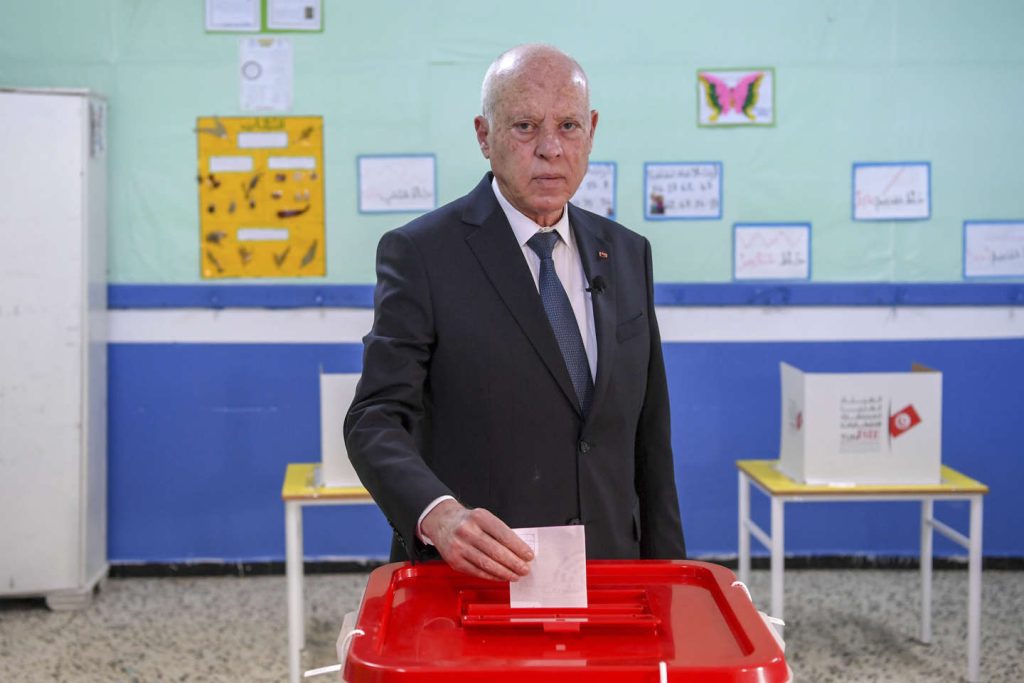
The opposition calls on the president to resign after a record abstention exceeding 90%

Tunisians largely avoided the polls on Saturday (December 17th) when they were called upon to renew their parliament. The opposition coalition called for the resignation of President Kais Saied, who wanted these legislative elections to put an end to the process initiated by the July 2021 coup.
According to the Tunisian Electoral Commission, only 8.8% of the electorate, or about 803 thousand voters out of 9 million, voted. This is the lowest voter turnout rate since the 2011 revolution, after records – nearly 70% in the October 2014 legislative elections.
The head of the Electoral College, Farouk Bouaskar, admitted a “Modest rate but not shameful”considering it was explained by Complete absence of vote-buying (…) with foreign fundingUnlike in the past, according to him.
What happened today was an earthquake.said Ahmed Najib Chebbi, leader of the National Salvation Front. “From this moment on, we consider Saeed an illegitimate president, and we demand that he resign after this abject failure.”, he added. The Tunisian opposition also called for Mass protests and sit-ins to demand new presidential elections.
For Jawhar bin Mubarak (FSN), “The Tunisian people have sent a message to foreign forces – some of which supported Kais Saied’s coup – and to the International Monetary Fund that they do not recognize this government, so they must reconsider their calculations.”.
Unknown candidates
A months-long accusation against Mr. Saeed (elected at the end of 2019) from “dictatorial drift”The opposition and most political groups boycotted the vote. They also denounced changing the election law and imposing nominations without party affiliation. Prior to the vote, the trade union center of the UGTT deemed these legislative elections unnecessary.
The new assembly of 161 deputies, with very limited powers, should replace the one that Mr. Saied froze on July 25, 2021, arguing that the democratic institutions that resulted from the first uprising of the “Arab Springs” had stalled after the fall. From the dictator Ben Ali in 2011.
Another factor that could explain the discontent: the candidates (1055), half of whom are teachers or civil servants, are essentially unknown, with very few women (less than 12%) in a country committed to equality. For months, the economic crisis has been the preoccupation of twelve million Tunisians, with inflation nearing 10% and frequent shortages of milk, sugar or rice.
The preliminary results of the first round of legislative elections will be announced on Monday.

“Unapologetic pop culture trailblazer. Freelance troublemaker. Food guru. Alcohol fanatic. Gamer. Explorer. Thinker.”
